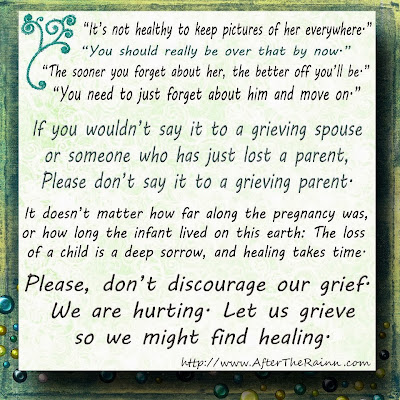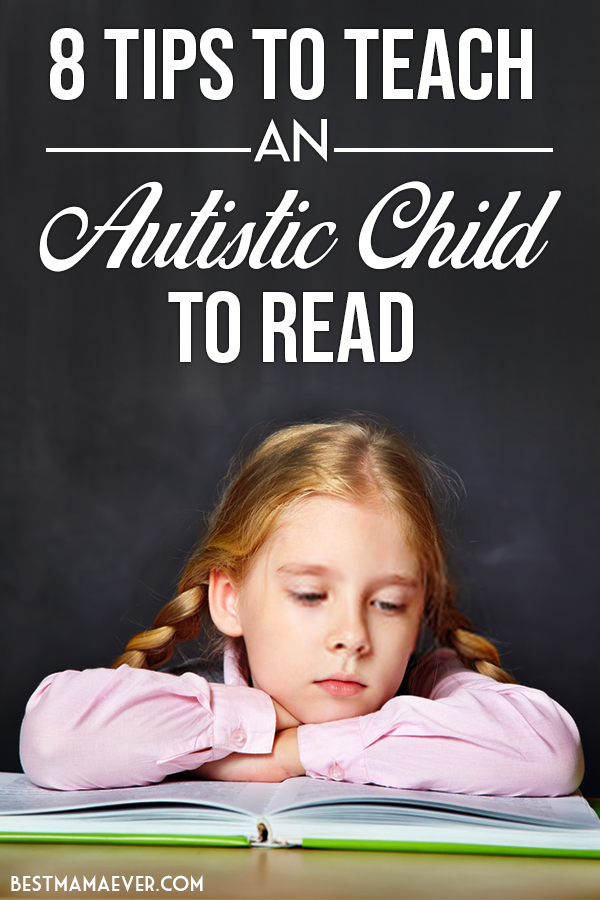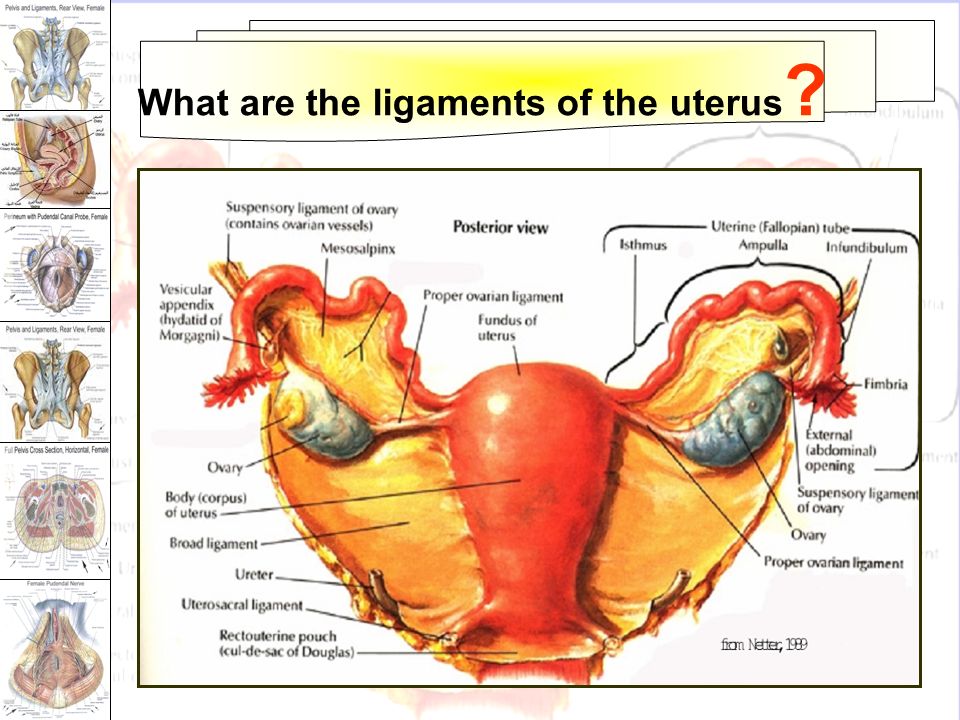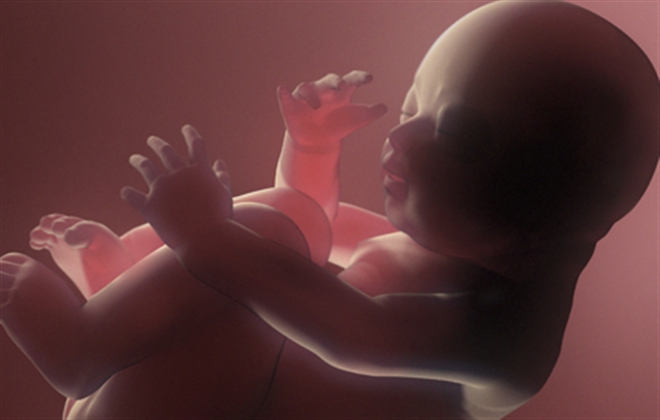How to help someone grieving the loss of a child
The 8 Best Ways to Help Someone Who Has Lost a Child
Do you know someone whose child died?
Are you wondering what to say to them or how you can help?
If you don’t know what to say to heartbroken parents after the loss of a child it’s not because there’s something wrong with you!
Most of us were not taught how to help grievers. And what we were taught was usually incorrect. Things like:
- To grieve alone
- To put on a happy face
- To be strong for our loved ones
We were even told that Elisabeth Kübler Ross’s five phases that terminally ill patients often go through when dealing with their own deaths are stages of grief. Unfortunately, a lot of people apply those stages to grievers rather than people who are facing their own mortality.
Just because a piece of advice is popular doesn’t mean it's helpful.
Talking about the death of a loved one can be taboo too. It’s as if grief is in the same category as talking about politics, money and religion. Frankly, grief and loss are two of the most misunderstood topics in the world.
Is it any surprise then that we don’t know what to say to bereaved parents and family members who are experiencing grief?
So let’s address this here and now. We know you care, have a big heart and want to help (or you wouldn’t be reading this).
Here are helpful things to say to parents who have had a child die and answers to some of your most frequently asked questions about what you can do for them.
What can I say to someone who has lost a child?
Start by telling the truth about yourself or asking what happened:
- I can’t imagine how heartbreaking that must have been for you.

- I don’t know what to say.
- What happened?
I feel uncomfortable when people are sad. Do you have some tips on how to listen, so they feel safe, heard and supported?
- Be a heart with ears. Follow every word they say and stay in the moment.
- Be patient. Give them time to talk without interrupting. It can be hard for grievers to formulate their thoughts and words, so they may take longer than usual.
- Let them share openly without judging, correcting, criticising or analyzing them.
- Remember, it can be painful for grievers to talk about their loss. Allow them to feel listened to and safe, even if you feel uncomfortable.
Is it okay for me to cry while they’re talking?
Yes! Allow yourself to have your normal and natural feelings too.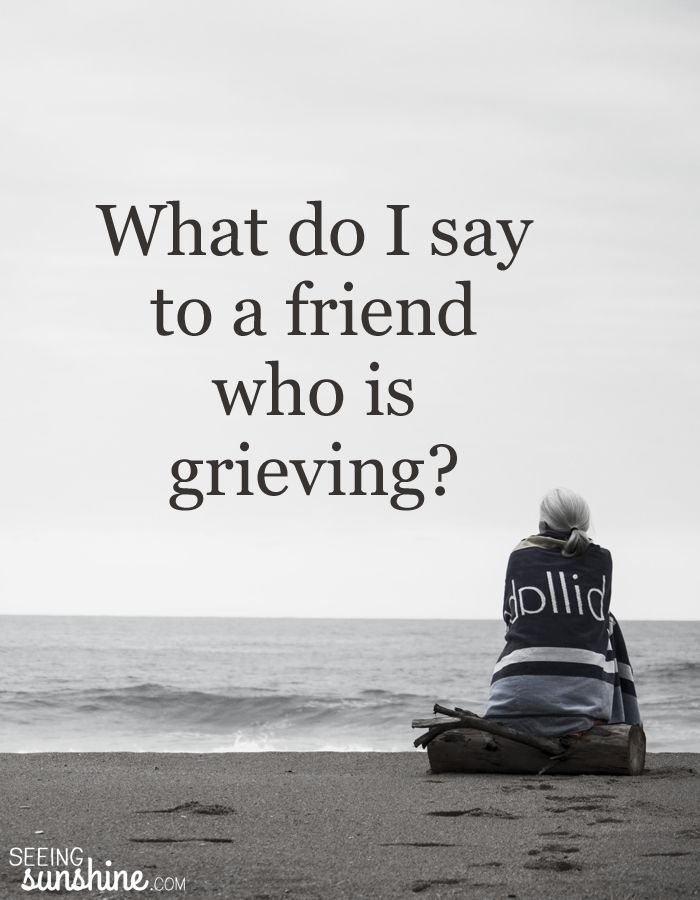 If you feel like crying then cry. If they say something funny then laugh right along with them.
If you feel like crying then cry. If they say something funny then laugh right along with them.
Is it okay to talk about my own child who died or other losses?
Remember that every relationship is unique, so we don’t think people should compare losses. However, if listening to them brings up memories for you, go ahead and tell the truth about yourself. You might say something like,
“I hear you loud and clear, and although I don’t know how you feel, I can certainly relate to what you’re saying. When my son died I felt……”.
Is it okay to talk about the child who died?
Yes it is. It’s common to think that it’s too painful for bereaved parents to talk about their child who died, so well meaning friends and family often avoid the subject. The problem is that it can also be painful when no one wants to talk about it. Grieving parents may think that their child has been forgotten or that no one cares, so they should feel better by now.
Grieving parents may think that their child has been forgotten or that no one cares, so they should feel better by now.
Should I give bereaved parents space to be alone?
You’ve probably been told that grievers just need a little space. We hear it so much in our culture that you might think that avoiding mothers and fathers after their child died is helpful, right?
Grievers might feel like there’s something wrong with them if they’re being avoided. They may wonder, “Why don’t I feel better already?”. This can lead to Academy Award Behavior, i.e. acting as if they are healed when they aren’t.
How long will my grieving friend need support?
Grieving parents tend to be showered with love and attention immediately following the loss, which is great. They also need grief support down the road. Continue to show up for them during the weeks and months following the death of their child. You might even keep track of important dates, like the child’s birthday, so you’ll remember to give them a loving call on those often painful days.
You might even keep track of important dates, like the child’s birthday, so you’ll remember to give them a loving call on those often painful days.
Should I recommend the Grief Recovery Handbook, 2 ½ Day Personal Workshop or your Grief Recovery Support Groups to grieving parents?
Absolutely, if you feel it’s the appropriate time.We know that time by itself simply passes. It’s the actions we take within time that allow us to heal after a loss.
One thing that’s important to remember is that a mother or father who has experienced the heartbreak of losing a child might be afraid to do Grief Recovery. They might also think they'll never recover.
As Russell Friedman put it,
“One of the most prevalent and damaging concepts related to the death of a child is the idea that you can never get over the death of a child.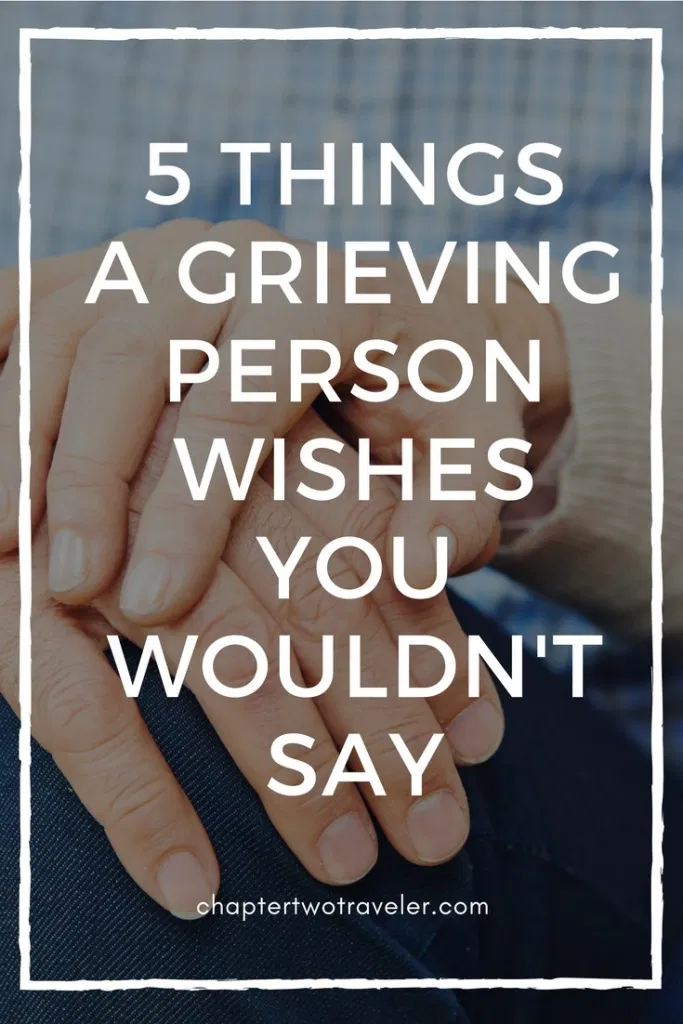 While it is impossible to ever forget your child, the idea of never getting over it adds a life in purgatory for the surviving parents and others.”
While it is impossible to ever forget your child, the idea of never getting over it adds a life in purgatory for the surviving parents and others.”
In over 43 years of helping grievers, we’ve seen heartbroken parents get complete with the hopes and dreams about the future that will no longer come to fruition. We’ve seen them able to think about their kids without feeling agonizing pain.
So by all means, feel free to direct your grieving friends and loved ones to The Grief Recovery Method where they will find the resources they need to heal their broken hearts.
You can also grab them a copy of The Grief Recovery Handbook or introduce them to our 2½ Day Personal Workshop. The 2½ Day Personal Workshop will give them tools to process their grief. The goal of every workshop is to help grievers regain a sense of hope and purpose in life.
Now that you know what to say to grieving parents, you might want to see what’s harmful to say to someone who has been devastated by the loss of a child: 19 Worst Things to Say to Someone Who Has Lost a Child
8 Ways To Help Someone Who Has Lost A Child
Cropped shot of two people holding hands in comforthttp://195.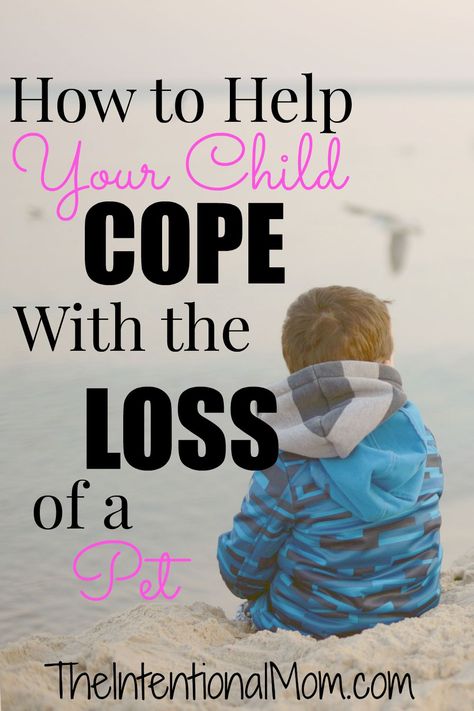 154.178.81/DATA/i_collage/pi/shoots/806098.jpg
154.178.81/DATA/i_collage/pi/shoots/806098.jpgAfter we lost our son, a lot of people wanted to do something but really didn’t know what to do. When a baby dies, it upsets the natural balance of the world and it is a very uncomfortable topic for almost everyone. Unlike when an adult who has lived a full life dies, when a baby dies all the hopes and dreams for what that baby also die. The heartbreak is unimaginable and in the beginning you really have to push yourself to breathe in and out each day.
However, there are some things you can do to help grieving parents. As National Pregnancy & Infant Loss Awareness Month comes to a close today, I wanted to end on a hopeful note and share some ways that you can help someone who has experienced the loss of a child. Even if it makes you uncomfortable, just remember that you are uncomfortable for a few minutes. The parents who have lost their child will be uncomfortable with the loss their whole lives. These eight simple things will help ease that discomfort a bit.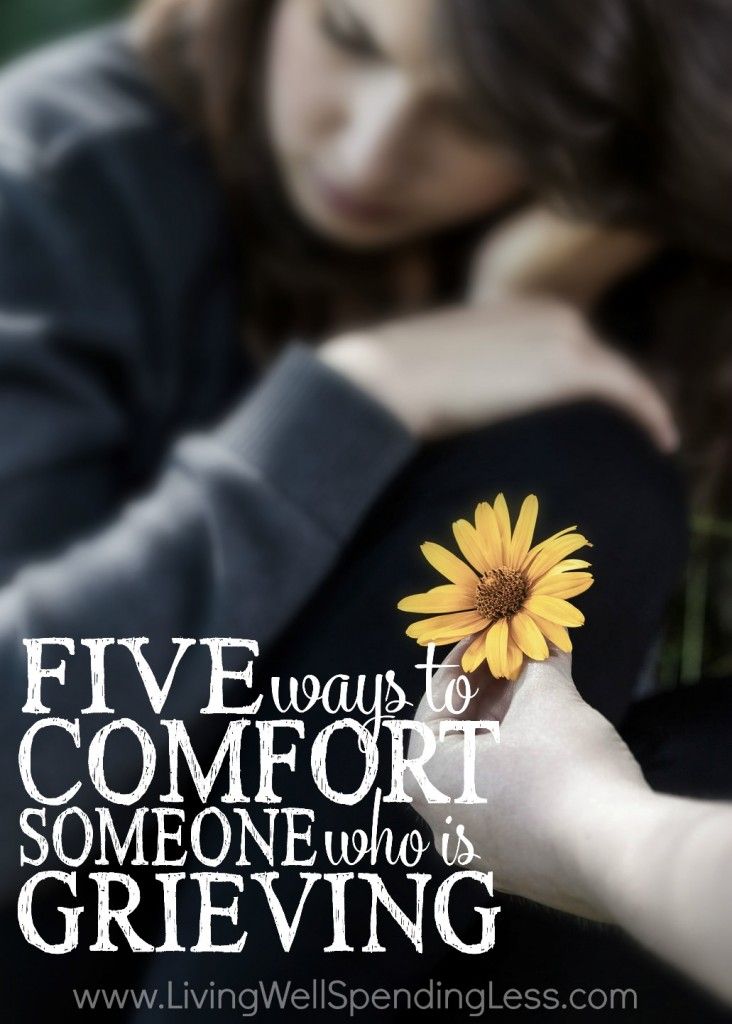
1. Say their name
My biggest fear was that no one would remember our son except for me. No one would talk about him because it made them uncomfortable, but just saying that baby’s name is one of the most important things you can do for mom and dad. Don’t be afraid to talk about that baby or child. I promise, those parents want to hear that baby’s name and have people remember that their baby was real
2. Send them a card
This one seems simple, but just as you would after an adult dies, send a card to parents who have lost a child just to let them know they are in your thoughts and prayers. Will it solve anything? No, but it will let them know you are thinking of them and praying for them. In the beginning they need as many prayers as they can get them through the long days and empty nights.
3. Bring/Give food
After our son was stillborn I didn’t cook for two months. I still remember the first thing I made. It was August and I made meatloaf.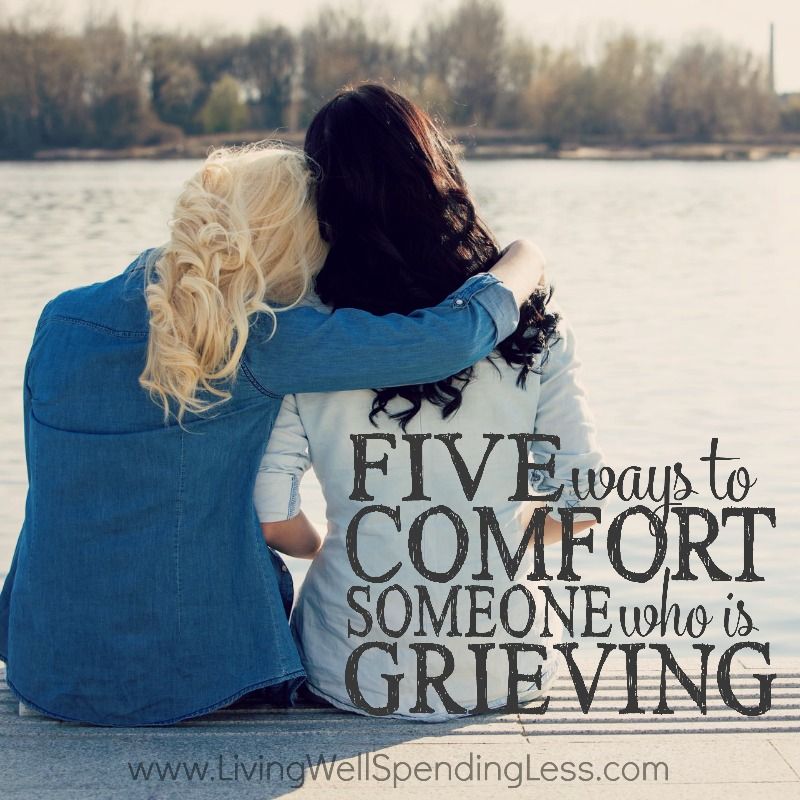 I don’t honestly remember what we were living off of before that. Luckily, a friend of mine brought us food and complete strangers sent us gift cards for food. In the early days these were invaluable. I literally didn’t get off the couch some days and the idea of getting back into the kitchen felt too much like normal life, like it I did it I would somehow be admitting he was completely gone. Molding a bunch of ground beef into a bread-like shape was a huge step for me.
I don’t honestly remember what we were living off of before that. Luckily, a friend of mine brought us food and complete strangers sent us gift cards for food. In the early days these were invaluable. I literally didn’t get off the couch some days and the idea of getting back into the kitchen felt too much like normal life, like it I did it I would somehow be admitting he was completely gone. Molding a bunch of ground beef into a bread-like shape was a huge step for me.
4. Offer to get them memorial jewelry
This one is such a nice gesture and something so special to offer. So many other loss moms I know have a special piece of jewelry to remember their babies. These don’t have to be something fancy, but just have to hold meaning. I’ve had three necklaces now and my current one has my three children’s initials etched onto a small, inconspicuous gold tab. However, I do think you should understand someone’s jewelry style if you plan to make this a surprise.
5. Ask how they are really doing
This is something that bothered me after I lost my son. People would ask me how I was doing, but they didn’t really want to know the answer. They didn’t want to hear that I felt like crap, would spontaneously hyperventilate or hear about my nightmares. They wanted the stock answer, “I’m good.” If you’re going to ask this question, ask for the real answer. No one is “good” or “fine” after this kind of loss for months.
People would ask me how I was doing, but they didn’t really want to know the answer. They didn’t want to hear that I felt like crap, would spontaneously hyperventilate or hear about my nightmares. They wanted the stock answer, “I’m good.” If you’re going to ask this question, ask for the real answer. No one is “good” or “fine” after this kind of loss for months.
6. Don’t rush the grief process
I know you want your friend or family member “better,” but don’t force them to rush the grief process or tell them that they should be “over this by now.” Don’t try to convince them to go on medication for depression when they are allowed to be sad. While they can go hand-in-hand, there is a difference between grief and depression and one is not always the other. They will be sad and different a lot longer than you and you shouldn’t expect their grief process to be like your’s. They’re the parents. They can’t just forget and they can’t just get over it. It’s a journey and for many people it is a years’ long journey that never really ends.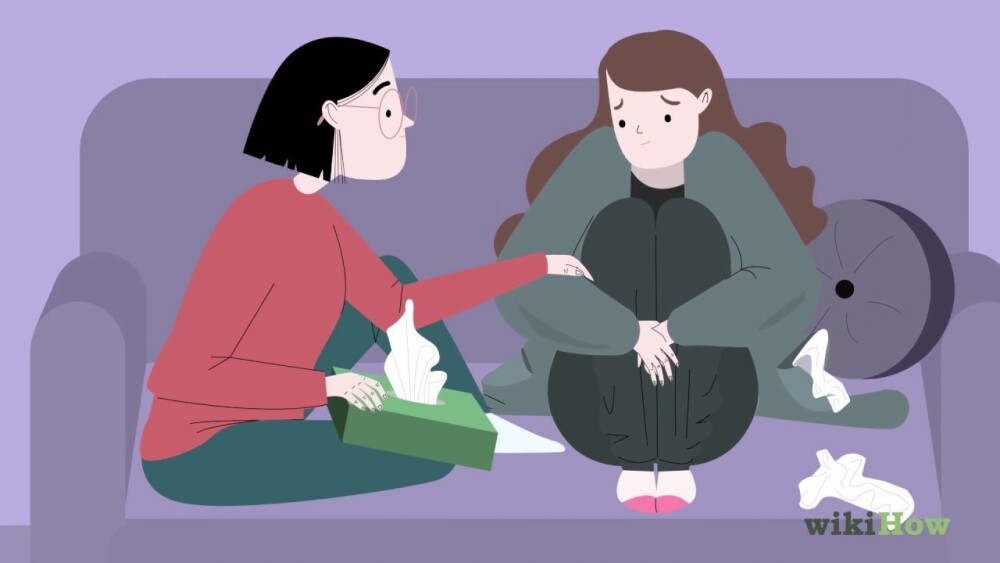 Figure out the best way to support them through the stages of grief and be ready for them to move between anger, sadness and denial. Be ready for them to take a few steps forward and then take a few steps back. It takes time. It takes a lot of time.
Figure out the best way to support them through the stages of grief and be ready for them to move between anger, sadness and denial. Be ready for them to take a few steps forward and then take a few steps back. It takes time. It takes a lot of time.
7. Remember their children at the holidays
All the first holidays are so very hard that first year. Christmas, Mother’s Day, Father’s Day and even holidays that may seem minor like Halloween can all take their toll on grieving parents. They are thinking of the life that could have been and will have anxiety about going through these days that are supposed to be all about family without their son or daughter. During Christmas you can give remembrance ornaments or if the child is buried, a small toy for their grave. Even if all you do is again tell them that you are sorry for their loss and say their baby’s name, they will be grateful that you haven’t forgotten along with the rest of the world.
8. Show them a little grace
Grief is hard. I spent a lot of time in the anger phase. A LOT. It was usually triggered by pregnancy announcements and other pregnant people. Your friend or family member may say some things in the heat of the moment that is magnified by their grief. They might not be kind things. I said plenty of things about people and even family that I wish I could take back. The anger stage is a bitch and so was I. But I was so very broken as a human being that it didn’t matter to me at the time. I was hurting so badly that it didn’t matter who I hurt. Luckily, my family and friends didn’t hold it against me forever. They recognized that I was in a unique place that they could not understand because they had never been there. They showed me grace at my darkest moments and they forgave me.
I spent a lot of time in the anger phase. A LOT. It was usually triggered by pregnancy announcements and other pregnant people. Your friend or family member may say some things in the heat of the moment that is magnified by their grief. They might not be kind things. I said plenty of things about people and even family that I wish I could take back. The anger stage is a bitch and so was I. But I was so very broken as a human being that it didn’t matter to me at the time. I was hurting so badly that it didn’t matter who I hurt. Luckily, my family and friends didn’t hold it against me forever. They recognized that I was in a unique place that they could not understand because they had never been there. They showed me grace at my darkest moments and they forgave me.
Since most people have not experienced a loss like this, they don’t know what to do but want to desperately help in some way. Hopefully this will help you if you have a friend experiencing the loss of a child. Or, if you have experienced the loss of a child, feel free to share this with friends and family.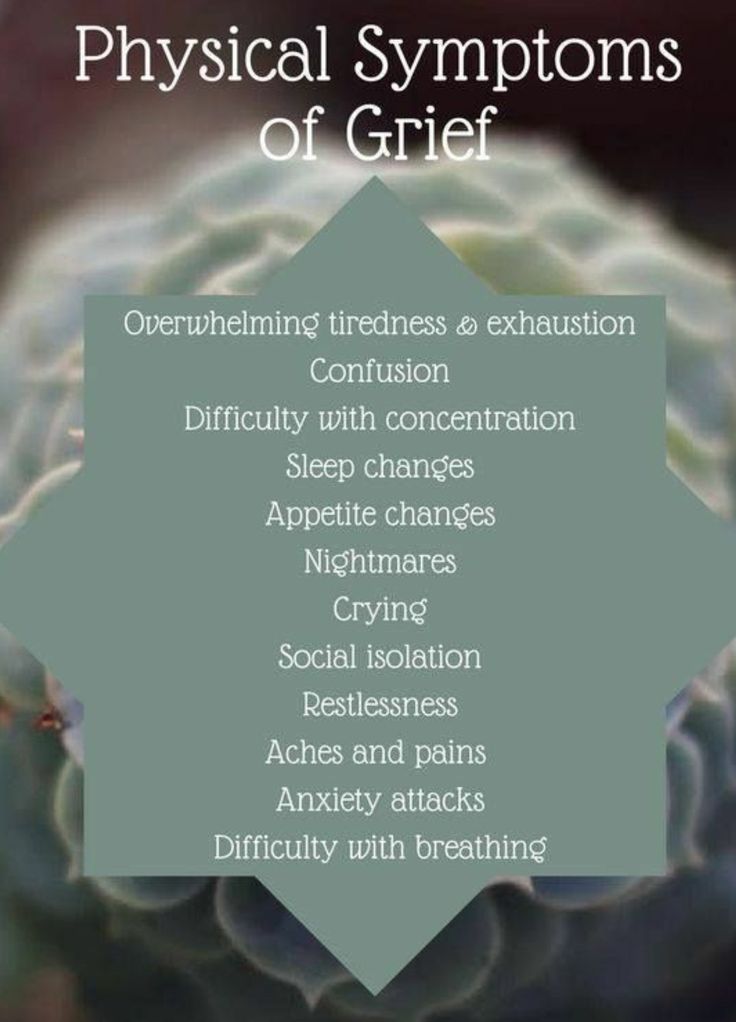 I found that telling people what I needed was the easiest way to get what I needed. Grief is messy, but these simple things will help make a huge difference to someone in the beginning of their journey.
I found that telling people what I needed was the easiest way to get what I needed. Grief is messy, but these simple things will help make a huge difference to someone in the beginning of their journey.
To read more mom life experiences, click here.
How to help a family in grief and grief after a bereavement - Pro Palliative
PRO PALLIATIVE uses cookies for statistics and analytics to make this website as user-friendly as possible. By staying on the site, you confirm your consent to the use of cookies.
Contents
What you may already know
What can help you
Bereaved, grieving parents
A grieving child
How children experience grief
How to help a child cope with grief
Attending a funeral
Alternative farewell
Useful sources of information for doctors and nurses around the world”, dedicated to the peculiarities of the process of mourning in children, practical advice on how to help them cope with the loss and how to support them during the funeral.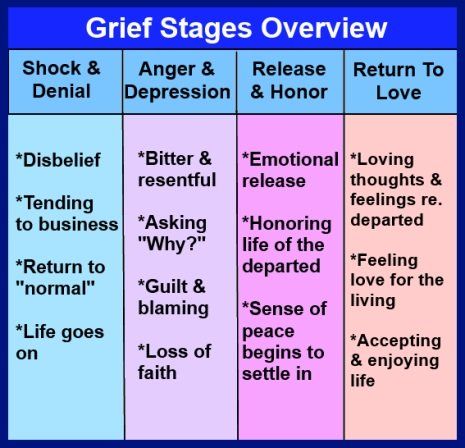 The passage will be useful both to the relatives of the child and to professionals working in the field of palliative care. The full version of the book is available for download here.
The passage will be useful both to the relatives of the child and to professionals working in the field of palliative care. The full version of the book is available for download here.
What you may already know
- Grief is an emotional and social reaction to loss, while mourning (berivement) is a state of experiencing the severe loss of someone or something dear. Grief is the outward expression of loss.
- Families, communities, and cultures can grieve and grieve in different ways. Rituals can help you find healing and relief.
- It is important that physicians always respect the wishes of the family, its cultural traditions and norms.
- Doctors and nurses can play a huge role in helping people deal with grief simply by being stable and professional, by being a skilled listener, and by being the person who helps with practical matters such as getting benefits, sick leave, and mental health care.
What can help you
- Grief is a natural consequence of the death of a loved one, but when a child dies, his death causes much more suffering to those close to him.
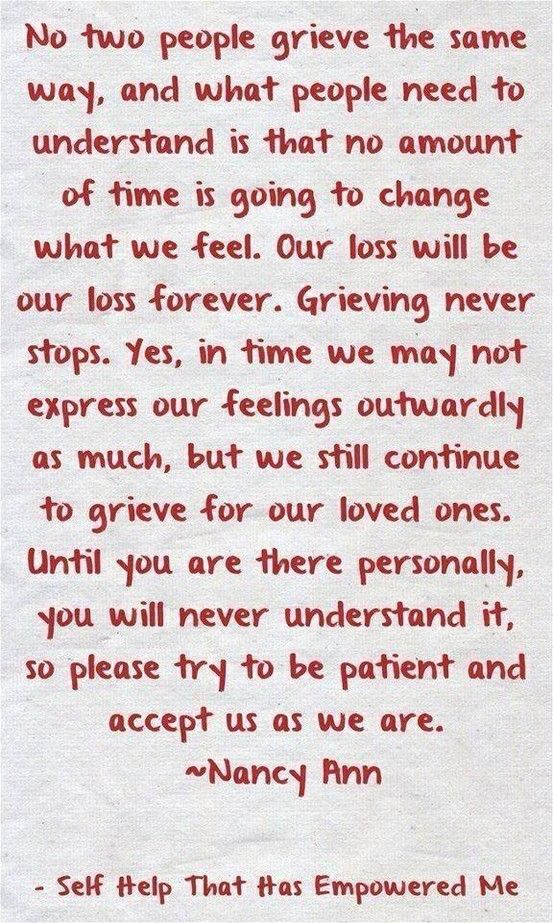 The death of a child can drastically change their lives. Family members, especially parents, may grieve for a very long time and may need ongoing support or counseling to help them come back to life and cope with the loss.
The death of a child can drastically change their lives. Family members, especially parents, may grieve for a very long time and may need ongoing support or counseling to help them come back to life and cope with the loss. - The death of a child often affects a large number of family members, including parents and caregivers, grandparents (who may mourn not only the death of a grandson or granddaughter, but also the loss of their child), siblings, including cousins, as well as distant relatives or foster families.
- A dying child also needs to accept his own approaching death.
- As a doctor or nurse, you already have experience dealing with bereaved people. It is important to keep in mind the deep emotional distress that the death of a child can entail, and the fact that bereaved children and adults experience grief in different ways.
Bereaved and grieving parents
Such parents need special attention. No one can predict how they will feel after the death of their own child. Most parents describe it as a whirlwind of emotions, ranging from numbness to intense anger, deep sadness, and some relief. Seemingly irrational behaviors and reactions are also quite common, as are overwhelming physical devastation and manic activity.
Most parents describe it as a whirlwind of emotions, ranging from numbness to intense anger, deep sadness, and some relief. Seemingly irrational behaviors and reactions are also quite common, as are overwhelming physical devastation and manic activity.
Parents may try to talk to you, just look for someone in you who listens. However, in most cases, they need to be referred to special services that can help them cope with the loss (if any). Immediately after the loss of a child, it is important to maintain contact with the family, as parents may feel deprived of something important - just yesterday they received intensive palliative care and suddenly it was all over. It will be good if you agree within the team on some kind of plan to support the family after the death of the child, to help them get used to life without him and try to return a sense of "normality" to their lives. Some families find it helpful when they focus on the death of their child at a certain time each day for the first few months, instead of letting grief consume them every minute.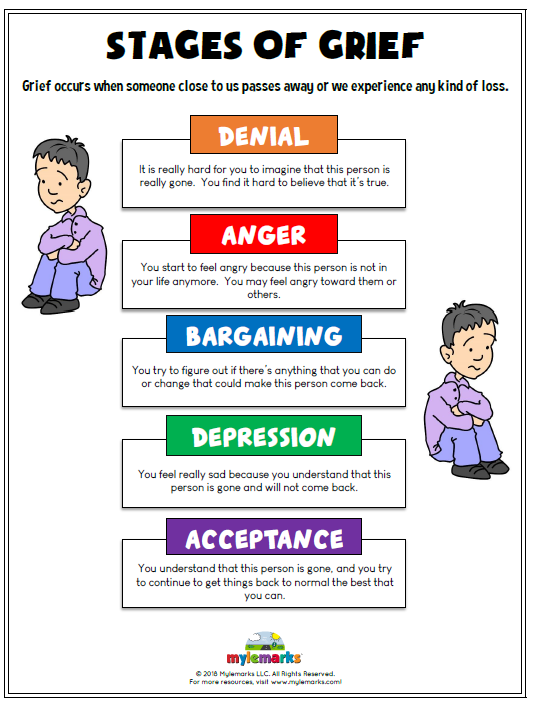 It helps a lot when other people remember important moments like birthdays, religious holidays, or the anniversary of a child's death.
It helps a lot when other people remember important moments like birthdays, religious holidays, or the anniversary of a child's death.
It makes sense to recommend that some families put together a "memory box" by putting in this special place the child's favorite things, such as a blanket, a teddy bear, anything that reminds them of their baby. Memory books or scrapbooks, including photos, can also help parents release emotions and have things to remember their child. It must be recognized that the grief of the departed beloved child may never end or disappear. Talbot ( Talbot ), bereaved mother and grief counselor, writes: “Healing after the death of a child does not mean complete freedom from pain. Healing means accepting that loss and learning to live with it. It means being able to love other people and give yourself back to life. Healing occurs when parents decide that they will not let pain be the only way they still love their child” (Talbot, 2002).
A grieving child
A dying child is grieving the impending loss of his own life.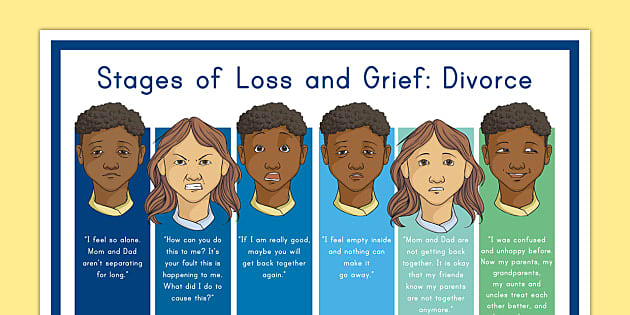 His brothers and sisters, as well as other children from among the relatives and friends of the dying child, also grieve. Sometimes it is difficult to talk to children about death in such a way that they fully understand it. Below are some tips for those special situations where a child has lost another child they loved very much (siblings, cousins, friends).
His brothers and sisters, as well as other children from among the relatives and friends of the dying child, also grieve. Sometimes it is difficult to talk to children about death in such a way that they fully understand it. Below are some tips for those special situations where a child has lost another child they loved very much (siblings, cousins, friends).
How children deal with grief
- It is difficult to reasonably generalize how children react to the death of loved ones: temperaments, personalities and circumstances can vary greatly.
- Children and young people may react differently as they partly it is determined by the level of their development.
- Response will also vary depending on the cause and nature of the death, family circumstances, previous experience of death and trauma in the family, age, relationship with the deceased, position in the family, length of acquaintance, flexibility, support and assistance received.
- Children can be unstable in their grief, moving from sudden sadness to an equally unexpected manifestation of happiness.
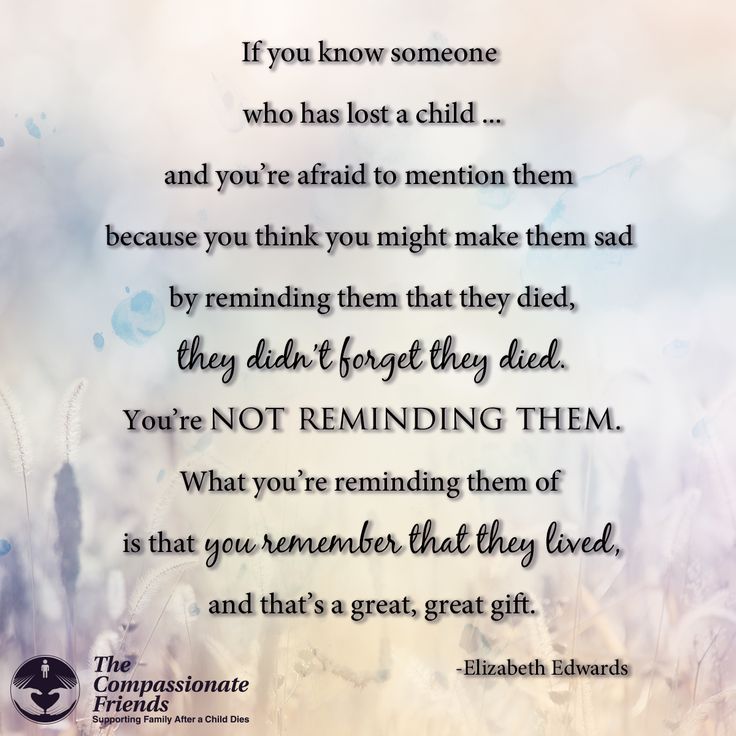 This can be very confusing for you and for them too. Allow children to express their inner emotions and encourage them to experience those feelings. Reassure children that these feelings are normal, so there is no need to be afraid of their manifestation.
This can be very confusing for you and for them too. Allow children to express their inner emotions and encourage them to experience those feelings. Reassure children that these feelings are normal, so there is no need to be afraid of their manifestation.
How to help a child deal with grief and grief after a bereavement
The appropriate term, bereavement work, implies that people must develop their own path through a variety of emotions, feelings, thoughts, and behaviors in the course of their own experience mourning.
As a helper, you should do everything you can to try to help grieving children in their “work” to deal with grief as successfully as possible.
Of course, the problem with this model is that no one can say what "successful" means for each individual. However, it is useful to think in such terms and to divide the whole "work" into three stages:
1. Until the loss. A child will begin to grieve as soon as he realizes that he or a loved one is dying.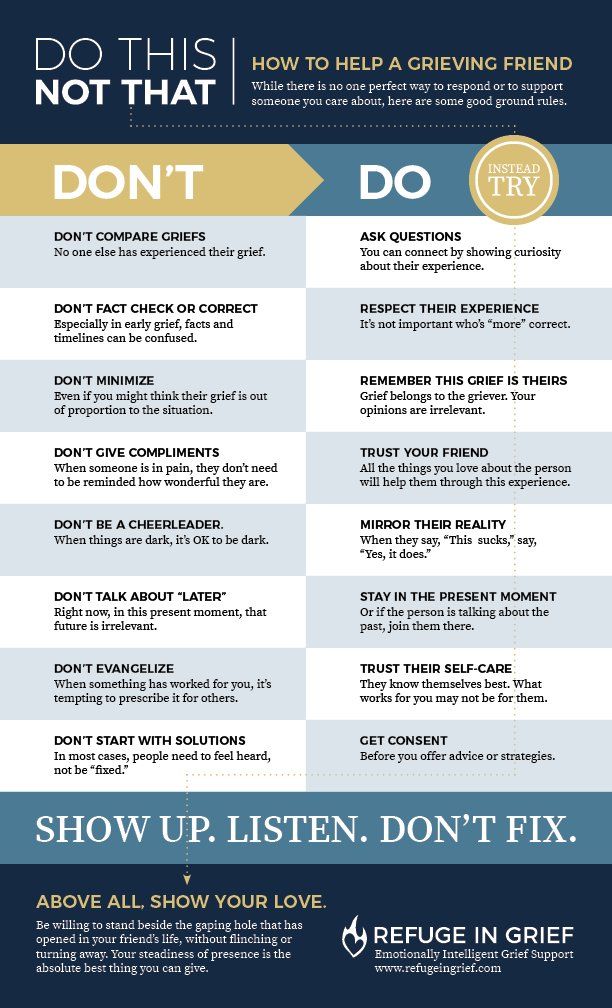
2. During the period of dying. Everything that happens while a child is dying has a huge impact on those who are left alive. A painful and traumatic death often leaves the living with guilt, anger, and pain. At the same time, a “good death” can help remember the good moments in the life of a deceased child.
3. After death. The child's grief can now be focused on what is already lost (rather than on what will be lost).
Before loss
- Encourage your child to talk and socialize, especially with family and friends.
- Avoid abstract explanations such as "your brother fell asleep."
- Allow your child to express emotions.
- Don't give false reassurances to your child (for example, saying "you'll definitely get better in a little while").
- Encourage "normality" in other areas of life, such as attending school.
- Allow negation to be present, but make it easy for the child to ask questions.
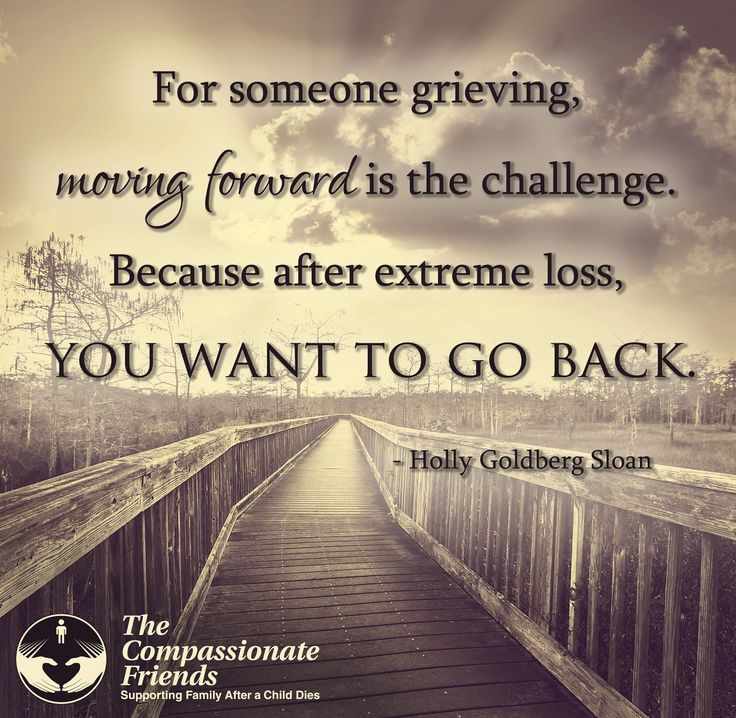
- Try to make the upcoming loss real to the child by including them in activities such as planning the funeral ceremony and final funeral rituals.
- Children are very creative, so they may want to participate in the creation of a memory book or scrapbook to store special memories of their time together and refer back to when they are older.
- Be prepared for premature mourning, often expressed as separation anxiety, sadness, anger, or withdrawal.
- Try to prevent the isolation of the child if the family keeps their mouths shut. Explain to the child, encourage him to communicate more openly and to share with other people.
- Remember that young children are imaginative and can attach huge consequences (including death) to tiny causes (for example, because they upset their mother that day). Use play or storytelling with dolls or teddy bears to help children express feelings and give you the opportunity to correct any false guilt they have taken.
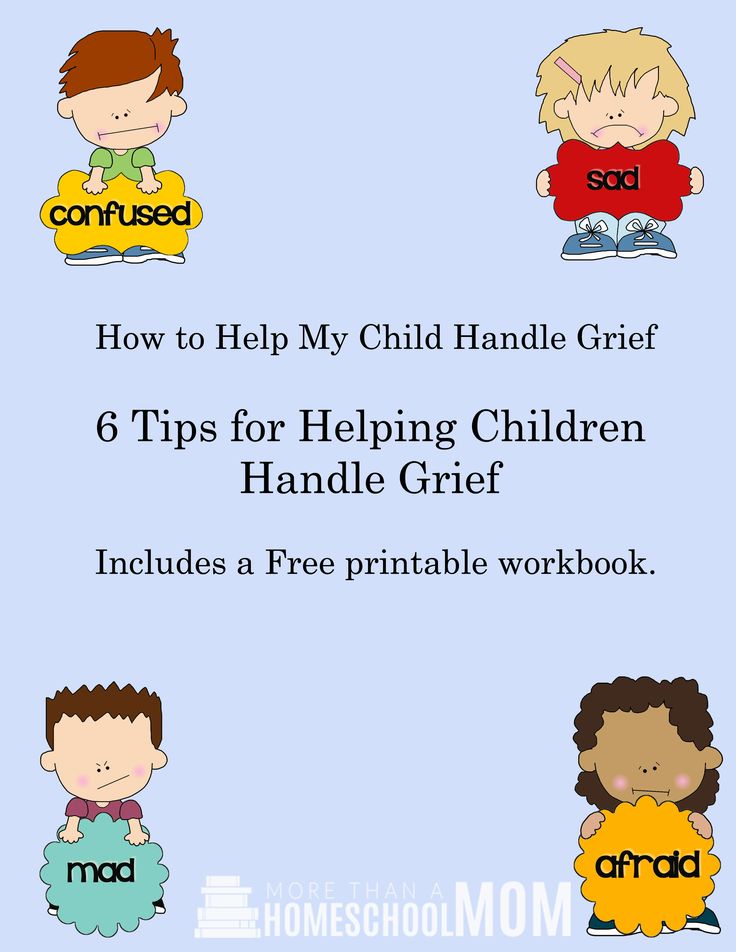
After death
In different cultures, it may or may not be considered normal for children to see the body of the deceased or attend funerals. The decision whether to see the body of the deceased should always be left to the discretion of the child.
Saying goodbye to the body can help a grieving child:
- Start saying goodbye.
- Start accepting the reality and irreversibility of death.
- Become aware of what happened.
- Understand that the child will not return.
- Less fear. Before the child sees the body, give clear and detailed information about what happened. For example: “Joseph is lying on the bed. He doesn't look quite the same as when he was alive. He is completely motionless. He won't be able to speak and won't move. If you touch it, you won't feel warm, you may feel cold. He is wearing his light-colored T-shirt and his dark gray trousers. There are quite a few flowers in the room and a few more postcards.
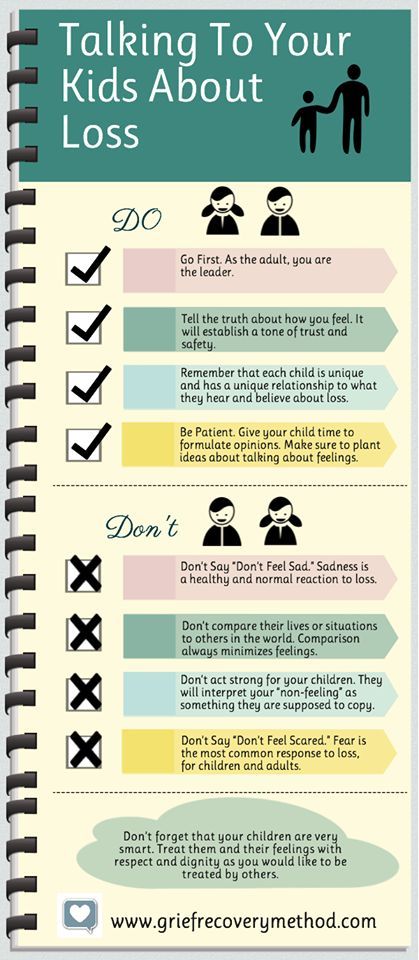 ” Let the child decide for himself what he will do when he enters the room: for example, freeze at the door, touch and stroke the body, leave the drawing nearby. Give your child the choice to decide if he wants someone to be with him or if he wants to be alone for a while.
” Let the child decide for himself what he will do when he enters the room: for example, freeze at the door, touch and stroke the body, leave the drawing nearby. Give your child the choice to decide if he wants someone to be with him or if he wants to be alone for a while.
Attending a funeral
- Try to make sure that the children are with someone who will support them.
- Convince them that only the person who has died is buried or cremated.
- Explain that a deceased person no longer feels anything and is not afraid of anything.
- Explain that the deceased person no longer suffers or feels pain.
- Explain that there will be some kind of “party” after the funeral, and there is no need to be surprised or upset about this.
- Prepare them for the fact that adults may say strange things, for example, a boy may be told that he is now "the oldest in the family." It will be important for the child to hear that this is not actually the case.
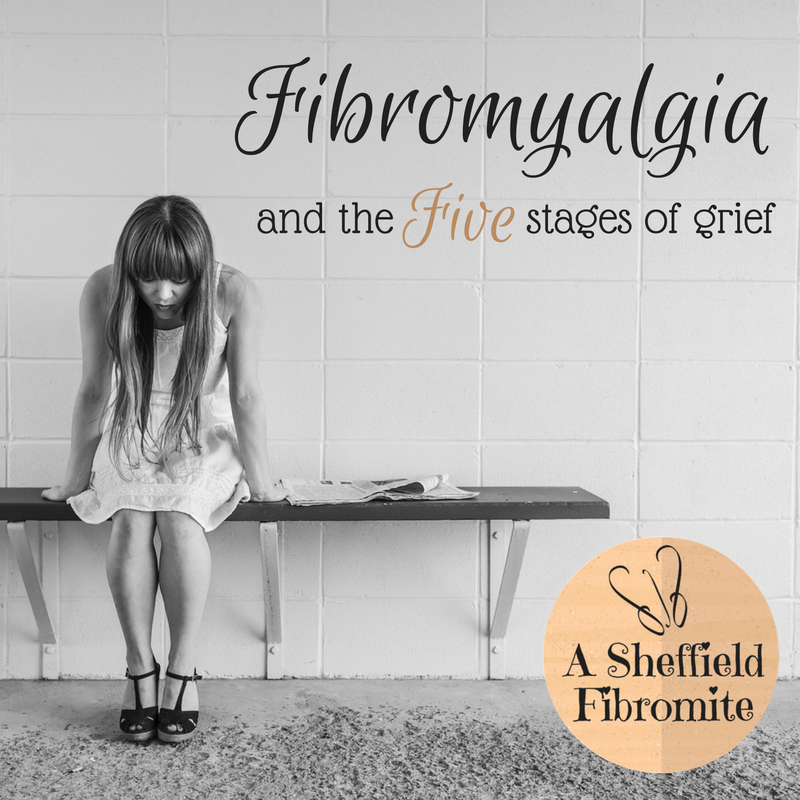
- Make the child feel involved (for example, they can draw a picture for the deceased person and leave it next to the body or say something at a funeral).
Alternative farewell
If the child is unable or unwilling to go to the funeral, try offering an alternative farewell to help deal with grief. For example, you can hold a memorial ceremony at home or at the grave; go to places associated with special memories; create your own place for farewell; release balloons with wishes into the air; light a candle and share special memories with each other; start creating a book or a memory box.
Useful sources of information
- Bluebond-Langner,M. (1980) The Private Worlds Of Dying Children, Princeton: Princeton University Press.
- Goldman,A. Hain,R. and Liben,S. (2006) Oxford Textbook of Palliative Care for Children - Chapter 15. Oxford: Oxford University Press Telephone and Internet support
- The Child Death Helpline: The Child Death Helpline is a helpline for anyone affected by the death of a child of any age, from pre-birth to adult, under any circumstances, however recently or long ago: http://www.
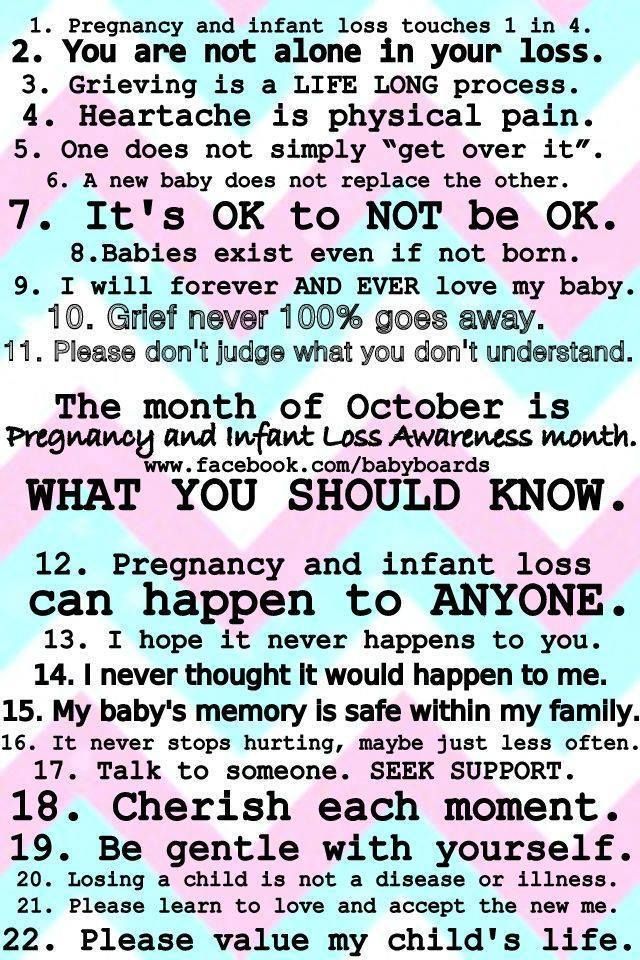 childdeathhelpline.org/ Helpline: 0800 282 986 Email: [email protected]
childdeathhelpline.org/ Helpline: 0800 282 986 Email: [email protected] - Winston's Wish is a childhood bereavement charity that provides services to bereaved children, young people and their families: http://www.winstonswish.org.uk/
- The Compassionate Friends UK is an organization of bereaved parents and their families offering understanding, support and encouragement to others after the death of a child or children. They also offer support, advice and information to other relatives, friends and professionals who are helping the family: www.tcf.org.uk Helpline: 0845 123 2304 Email: [email protected]
- TCF Sibling Support is a project run by The Compassionate Friends which provides nationwide self-help support for people who have suffered the loss of a brother or sister. www. tcfsiblingsupport.org.uk
- The Child Bereavement Charity http://www.childbereavement.org.uk
- Grief Encounter aims to help and support each person with an individual http://www.
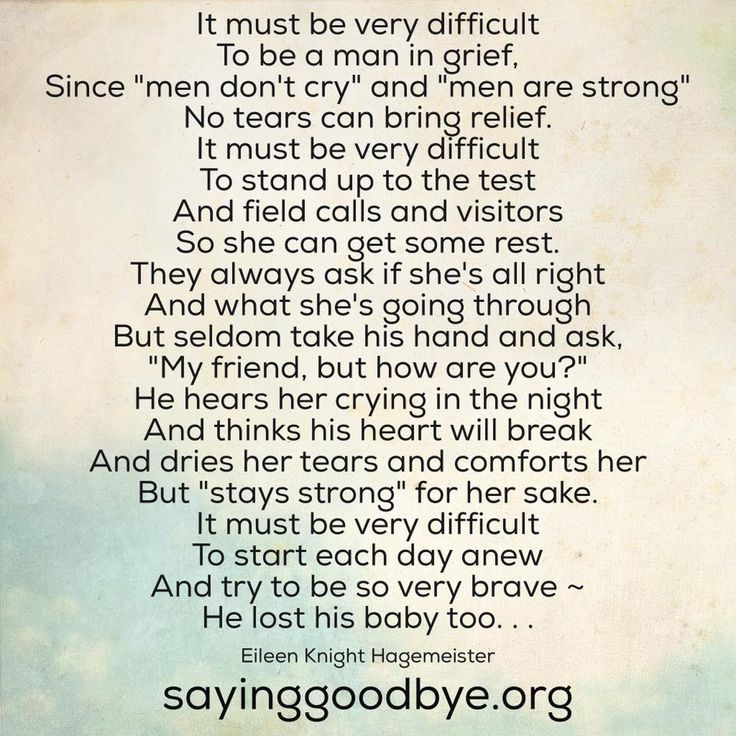 griefencounter.org.uk
griefencounter.org.uk - Season for Growth is a loss and grief peer-group education program for young people aged 6-18 years in England & Wales: http://seasonsforgrowth.co.uk/ and for Scotland: http://www.notredamecentre.org.uk /seasons-for-growth.aspx.htm
Emery J. The Really Good Guide to Children's Palliative Care for Doctors and Nurses Around the World / Per. from English. T. Babanova ; Ed. translation yes Ph.D. honey. Sciences N. Savva - M .: Prospekt Publishing House, 2017. - 464 p. ISBN 978-5-98597-341-9
https://pro-palliativ.ru/blog/kak-pomoch-seme-v-gore-i-gorevanii-posle-tyazheloj-utraty/
Share
Copy Reference
Copy reference
Recommended materials
The Pro Palliative portal is the largest information project in the country dedicated to helping terminally ill people and their families expand your knowledge of palliative care.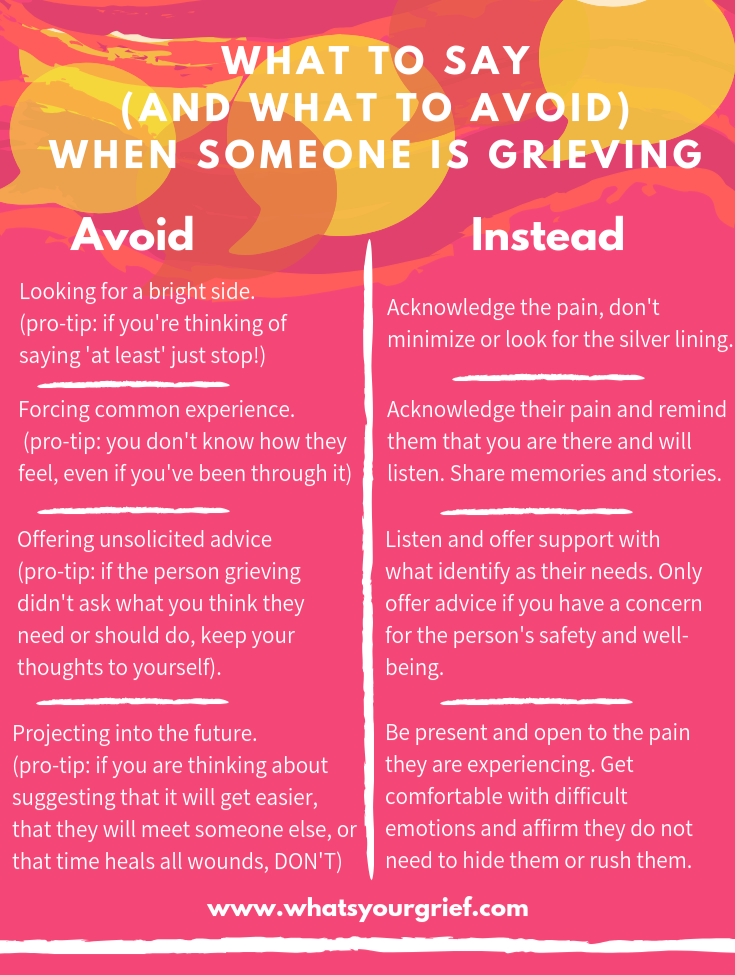
Donate
German experience - Pro Palliative
Contents
What is mourning?
Gateway time
Janus time
Labyrinth phase
Rainbow phase
Recall the situation when someone close to your friend, acquaintance or colleague died. Who among us has not been confused? How to comfort? The phrase "Hold on!", help in organizing the funeral, money? And then what? Distract? Leave alone?
The grief of losing a loved one is constantly faced by palliative care professionals and ordinary people. To support a relative of a deceased patient, you need to know how to do it correctly. We offer you to get acquainted with the practice of such support, which is used in the German "Long-term Care Center Ludwig-Steil-Hoff". This was told at the Summit of Nurses in Moscow by Katya Petker, a senior nurse, head of one of the Center's hospitals.
In Germany, each clinic has the right to freely choose the concept of mourning, or the concept of bereavement, according to which it will work with relatives, accompany them after the death of a loved one.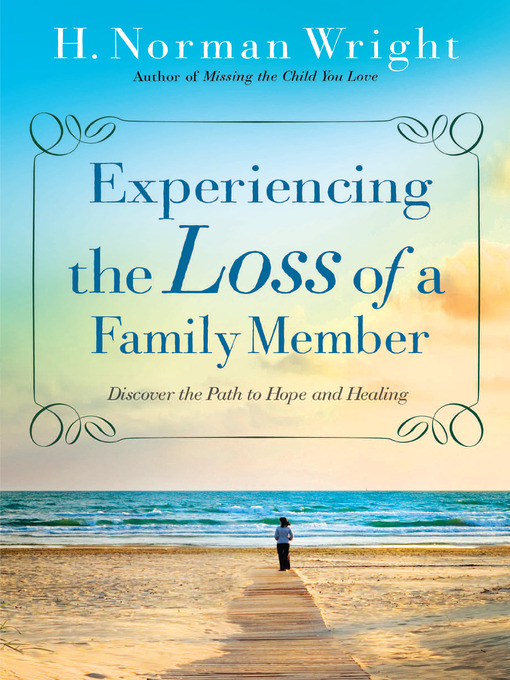 There are several of these concepts, and there is no “obligation” which one to follow.
There are several of these concepts, and there is no “obligation” which one to follow.
After our patient dies - it doesn't matter if he was in our hospital or was at home and we observed him - we do not leave his relatives, we do not leave them alone in trouble, but we try to accompany them. And for the past five years we have been working in accordance with the concept of experiencing loss according to Schmieding (the creator of the model is Ruthmaraika Schmieding, a German teacher: having lost a person close to her, she began to study the processes that happen to people during this period), which describes what a person experiences at every stage of his mourning.
What is mourning?
People cannot stand the pain of others About what can be done for a person who has lost a loved one. Personal experience.
Mourning is an external form of expression of sadness or grief due to the loss of a loved one.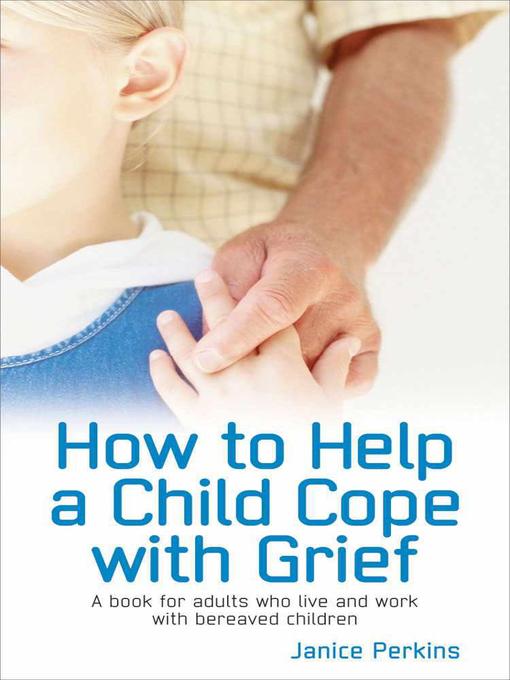 This concept is also used when it comes to the death of a public figure, a major statesman, the tragic death of a large number of people. But, of course, we most acutely experience the death of a loved one.
This concept is also used when it comes to the death of a public figure, a major statesman, the tragic death of a large number of people. But, of course, we most acutely experience the death of a loved one.
I would like to introduce you to the mourning model for Schmieding. Why is it so important to know her? This knowledge will help both the relatives of the deceased and the staff of the medical institution.
Without knowing anything about the stages of mourning, about how a person reacts to loss and what phases he goes through in his grief, sometimes you might think that he is pretending that his reactions are feigned.
It can be difficult to understand what is happening to him, where he has certain emotional manifestations, and how to help him. And this model just gives an understanding of how a person experiences his loss. This helps to support a suffering relative so that he can get back on his feet and move on in life. The ultimate goal of this model is to help the relative find resources and opportunities that will give him the strength to live on after the loss.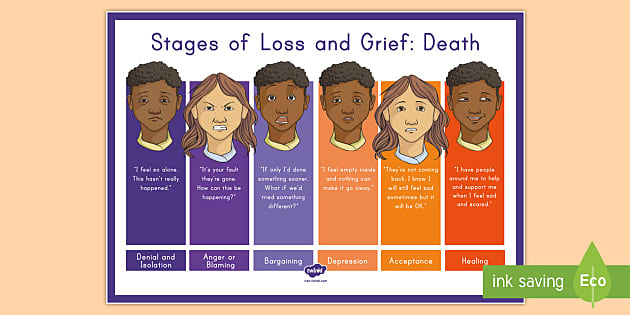
“Hold on”, “I understand you”, “The time has come” – how not to console Crisis psychologist, psychologist at the Children’s Hospice “House with a Lighthouse” Larisa Pyzhyanova – about typical phrases of consolation and about what is really behind they cost
This model considers not only the emotional side of experiencing the death of a loved one. Mourning affects all areas of life - on the psyche, on spiritual aspects, on consciousness, cognitive functions, on the social side, so we consider a person in the complex of his manifestations.
Looking at mourning in general, there are four phases of pain:
- “Time of locks”;
- Janus Time;
- Maze Time;
- Rainbow Time.
The difficulty lies in the fact that mourning, mourning is not a linear process: these phases can be repeated, come back, and many times. You have probably heard about the stages of accepting death according to Elisabeth Kübler-Ross? She distinguishes five phases: denial, anger, bargaining, depression, acceptance.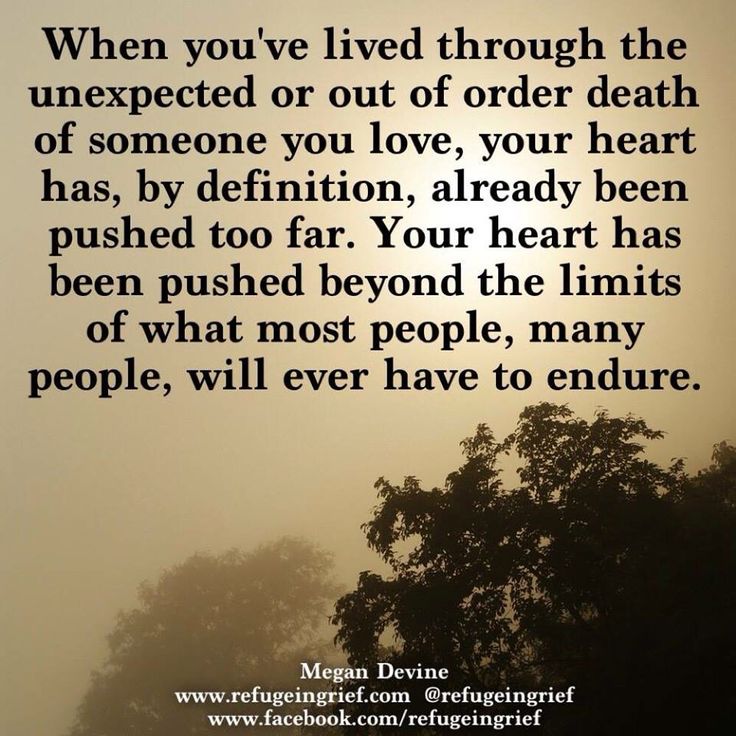 These stages are intertwined, can alternate, repeat, which is why it is so difficult to be close to a worried person: today he is calm, peaceful, tomorrow he again rushes about, gets angry, the day after tomorrow he has depression, apathy.
These stages are intertwined, can alternate, repeat, which is why it is so difficult to be close to a worried person: today he is calm, peaceful, tomorrow he again rushes about, gets angry, the day after tomorrow he has depression, apathy.
It's the same here: all these stages are shifting, so it can be very difficult to understand a person who is in mourning, in mourning, it is very difficult to support and accompany him.
Lock time
This is the shortest of the four periods, it lasts from the death of a loved one until his funeral. And this is the only phase of the four that does not repeat, so it is very important to take into account the cultural and religious needs of a person at this moment.
Of course, a lot depends on whether the death was sudden, say, as a result of an accident, or expected, after a long illness. Naturally, sudden death is much more difficult, more painful, and the process of mourning is delayed.
In general, this phase can be characterized by the following metaphor: the ship needs to be controlled, and a “gateway guard” is needed, who opens the lock so that the ship moves from one basin to another, that is, ensures the transition from one state to another.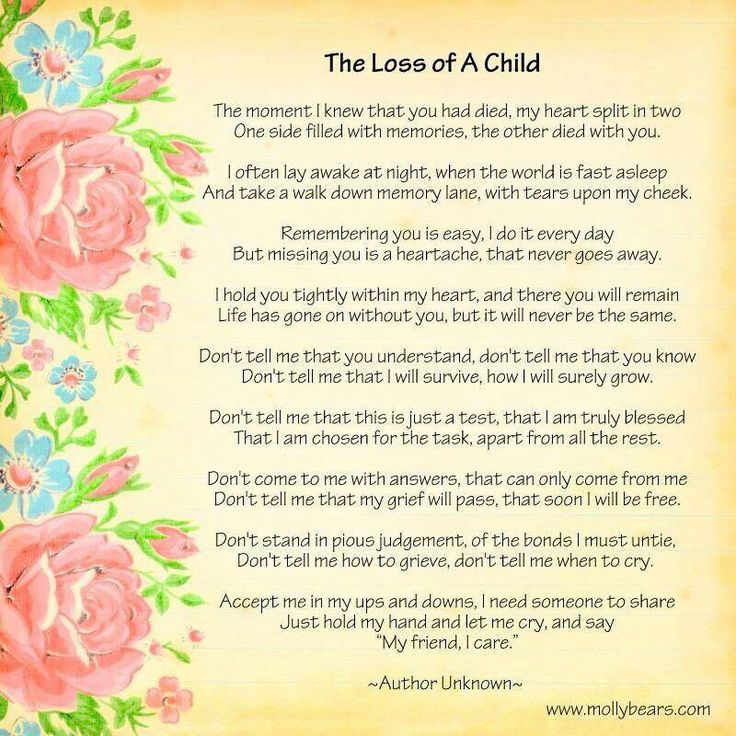 Otherwise, grief can overflow.
Otherwise, grief can overflow.
I imagine this situation as follows: a person died, and while he was ill, he was lying in our institution, he was the captain of the ship. This person is gone, which means that now someone else must become the captain of this ship, and this other must lead the ship until the funeral takes place. What does it mean? First of all, he must be a Man with a capital letter: be able to listen, keep silent where necessary, support, come, shake hands, just sit next to him. Such actions alleviate grief, partially relieve its emotional severity.
Of course, the maintainer needs to be attentive and infinitely patient in order to be able to listen to the same stories over and over again. Each of us, I'm sure who went through this phase, noticed that a person who has lost a loved one is able to tell the same story ten times, connected with the deceased, constantly returning to it. In the end, the listener begins to think: “Yes, I don’t want to listen to this for the eleventh time!”.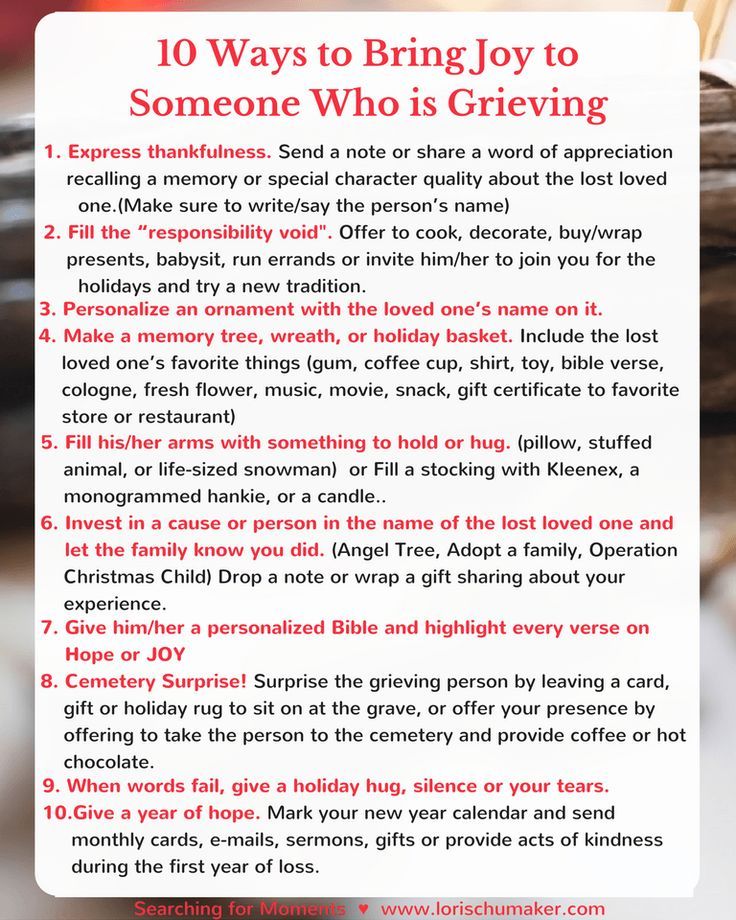
To be heard - for the tenth, and the eleventh, and the one hundred and eleventh time - is very important for a person in mourning! Thus, he, as it were, processes his grief, looking for the next step in order to move on in life.
How to help a grieving child How a child perceives death and experiences grief at different ages, why it is important to take children to funerals, and why the phrases “poor thing, you are left alone” or “now you are the head of the house” are dangerous
This is especially characteristic of the "gateway" period.
At this moment it is necessary to extend a hand to the mourner: visit him, listen to him, help organize a worthy funeral and commemoration. It is necessary to try to protect the sufferer during this period from some stumbling blocks, additional experiences that exacerbate suffering. A person experiencing a loss often experiences a feeling of guilt, a feeling that he didn’t do something, didn’t finish something: “If I were there then .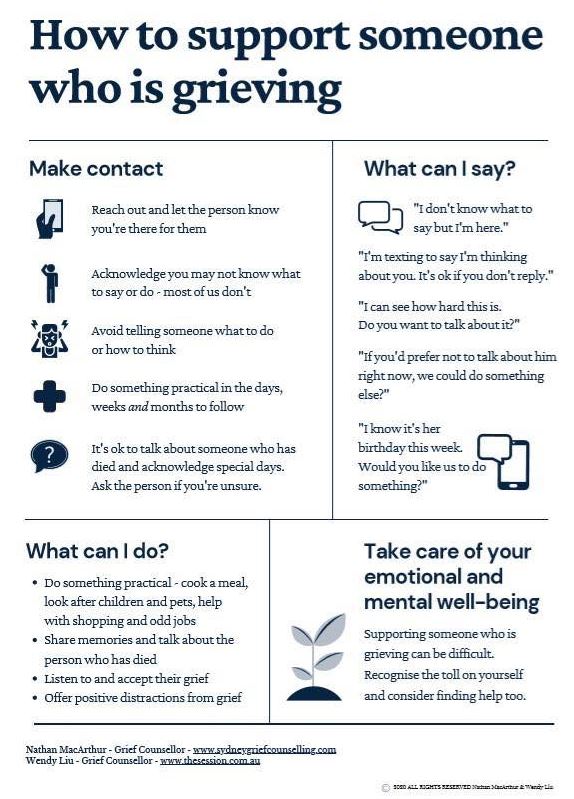 ..”, “If we organized the funeral like this ...”, - such experiences place an additional burden on the shoulders of a person in mourning, and he carries this burden further. Therefore, it is very important that everything that can be done is done to remove this burden from the shoulders of a person: you need to talk to him, support him, listen, help with the funeral, help in solving emerging problems. It is important that at this time of grief, other individual paths open up before the person so that the person takes the next step.
..”, “If we organized the funeral like this ...”, - such experiences place an additional burden on the shoulders of a person in mourning, and he carries this burden further. Therefore, it is very important that everything that can be done is done to remove this burden from the shoulders of a person: you need to talk to him, support him, listen, help with the funeral, help in solving emerging problems. It is important that at this time of grief, other individual paths open up before the person so that the person takes the next step.
Janus time
The second phase of mourning is Janus time . Why Janus? This is the two-faced god of time in ancient Greek mythology: one face is young, the other is the face of an old man. A person in this phase also has “two faces”: one is the one that he shows to others, to society, the second he hides, hiding what is really happening to him (for example, he comes home and cries into the pillow for a long time, or he fancies , as if he hears the voice of the deceased, but he is afraid to tell someone about it, so that he would not be considered crazy).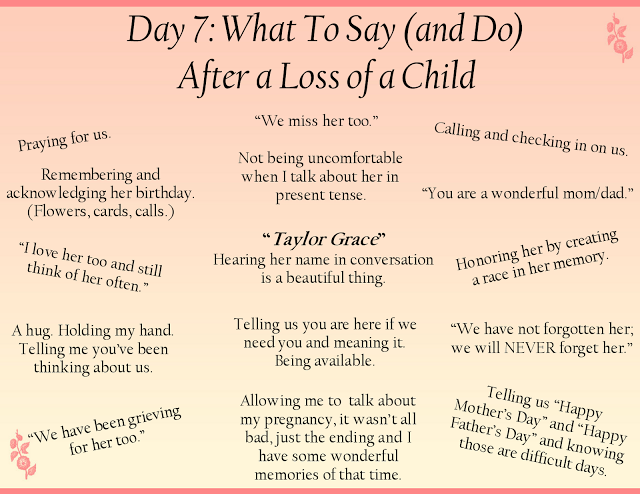
Photo: Sydney Sims / Unsplash
And in this phase, a lot depends on whether the person died suddenly, or his death was expected. If this happened suddenly, then, if possible, it is not necessary to talk about the deceased with a relative, during this period such conversations will be an additional burden, stress, and heaviness for him. The time will come, and the mourner himself will ripen for such conversations. As long as he himself does not talk about the deceased, do not provoke him to such conversations. You just need to be there, to accompany, to listen, but not to speak. And if death was expected, here, on the contrary, it is very important to talk with relatives in this phase: discuss the funeral, talk about how the deceased lived, about everything connected with him. Each such conversation brings relief, strengthens a person and gives him the resources to take the next step, to find, as I always say, solid ground under his feet and move on in life.
Society's attitude towards death.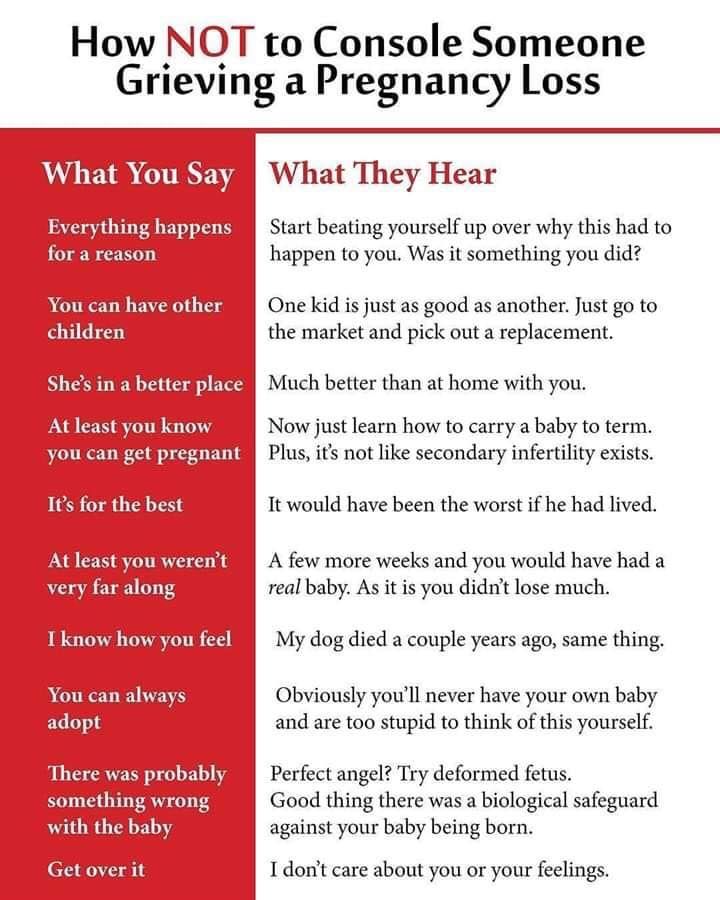 From the book “In the middle of life” Why, despite the inevitability of death, we try not to talk about it, and how this “conspiracy of silence” affects children who have lost loved ones
From the book “In the middle of life” Why, despite the inevitability of death, we try not to talk about it, and how this “conspiracy of silence” affects children who have lost loved ones
Here is the funeral behind: what happens next with people who experience the death of a loved one ? In the process of mourning, they begin to pay attention to dates, correlate certain days with events that took place near the deceased: they follow the calendar, remember when this person was born, at what time he got to the hospital, etc. That is, they seem to relive everything that happened again.
Bereavement often has sleep disturbances—we all know that. This is a time of tears and doubts. The man has already spent a lot of energy on the funeral, and he understands that he has a hard way ahead. He loses his appetite, he does not sleep, he may have a feeling that he is going crazy.
In 2005 my mother died. At that time, there was no such program for accompanying relatives.
And after her death, after the funeral, one day I came home from work, crossed the threshold of the house and heard my mother say to me in German: “Katya, is that you?”. I answered: “Yes”, but I knew that my mother was no more.
I got scared then, I thought: “That's it, I'm going crazy”. But when I began to discuss this episode with my colleagues, it turned out that this is quite a normal phenomenon during a period when a person is in this phase of mourning: changes occur in his body, there is a feeling that time has stopped. These are all normal reactions of a grieving person. A loved one is no more, but for those who mourn, he is there. Many feel the familiar smell of the departed, hear his voice, feel his touch.
Often people continue to observe all the usual family rituals, as before, when a loved one was alive - they set the table, cook food for the same number of family members as before. They, as if by inertia, still live with a deceased loved one. All these actions are reflected in the change of phases of mourning, this is part of the process, and in any case a person must be supported.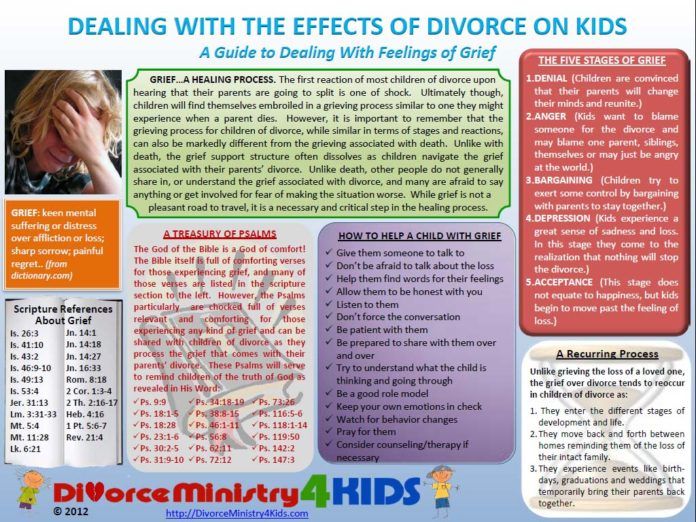 Grieving people are often afraid to tell someone about what they are experiencing, but it is very important for them to speak out! Therefore, we create groups of mourning, mourning: once a month or every few months we invite relatives who have lost their loved ones to a meeting so that they can talk and get support. And if it is clear that a person has a need for psychiatric help - he has depression, suicidal thoughts - we offer help to such a relative.
Grieving people are often afraid to tell someone about what they are experiencing, but it is very important for them to speak out! Therefore, we create groups of mourning, mourning: once a month or every few months we invite relatives who have lost their loved ones to a meeting so that they can talk and get support. And if it is clear that a person has a need for psychiatric help - he has depression, suicidal thoughts - we offer help to such a relative.
Labyrinth phase
If the feeling of guilt tears the heart apart In all the languages of the universe, so different, we are connected by one dialect - the one that sounds in our hearts as the voice of pain. When we lose loved ones...
This is the very core of mourning, when grief is processed. In principle, this stage can be represented as follows: mourning is a backpack, it is a burden on the shoulders. And with this burden, a person enters the labyrinth, steps forward along it, stumbles, wanders, returns back to the old place.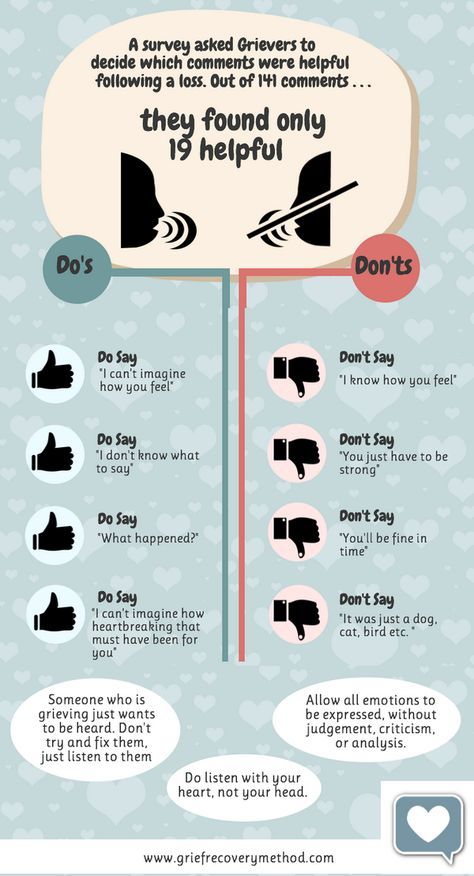 He is looking for a way out, trying to get out of this phase! In the end, there is a way out, and we all know it. A person will come out of this labyrinth - and the backpack will be with him, yes, but - it is no longer as heavy as at the beginning. The one experiencing the loss has already understood, accepted that the deceased is not next to him, he understood that his life goes on, and the departed remains in his heart. By the end of this period, a person is fully aware of the reality of the loss and, with the awareness of this loss, moves on in life.
He is looking for a way out, trying to get out of this phase! In the end, there is a way out, and we all know it. A person will come out of this labyrinth - and the backpack will be with him, yes, but - it is no longer as heavy as at the beginning. The one experiencing the loss has already understood, accepted that the deceased is not next to him, he understood that his life goes on, and the departed remains in his heart. By the end of this period, a person is fully aware of the reality of the loss and, with the awareness of this loss, moves on in life.
To talk or not to talk to him during this period? Here everything is individual. Regardless of the phase, if a person accepts your help, is open to conversations, you need to support them - remember the deceased, be there. But if the mourner declines your help, you need to step aside and just watch. And be ready to help, listen when needed.
Rainbow phase
The last step is rainbow phase .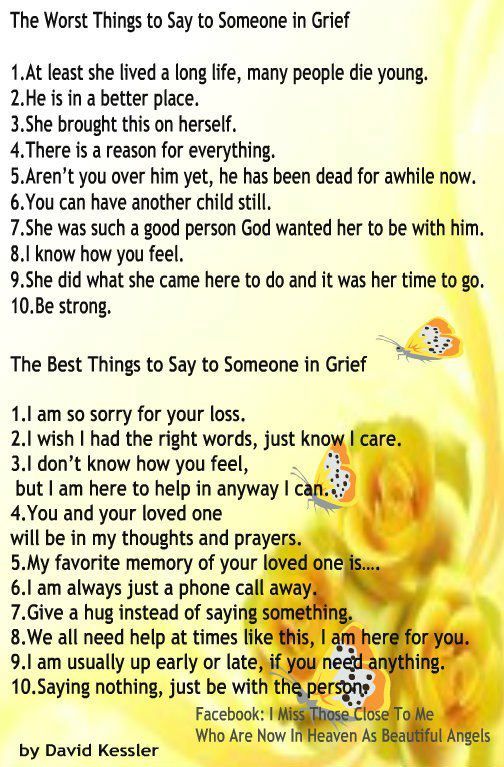 Having survived, processed grief, a person moves on in life and again finds the opportunity to rejoice. This is the end of the time of sorrow, life goes on as usual, but no one is forgotten. The deceased becomes part of the new life.
Having survived, processed grief, a person moves on in life and again finds the opportunity to rejoice. This is the end of the time of sorrow, life goes on as usual, but no one is forgotten. The deceased becomes part of the new life.
But even at this stage it is possible to return back to the previous phase. Those who accompanied the mourners know that today they can laugh, and tomorrow they can cry inconsolably. All such manifestations must be reacted calmly - laugh with those who laugh, cry with those who cry. But if you notice mental abnormalities, you need to offer the help of a psychiatrist.
These fluctuations in a person's soul are normal. Gradually, he comes to the realization that, even while grieving, you can move on and enjoy life.
Grief at work How to help yourself when you have to go through acute grief and at the same time continue to work, fulfill your social functions
Grief is special for the elderly.